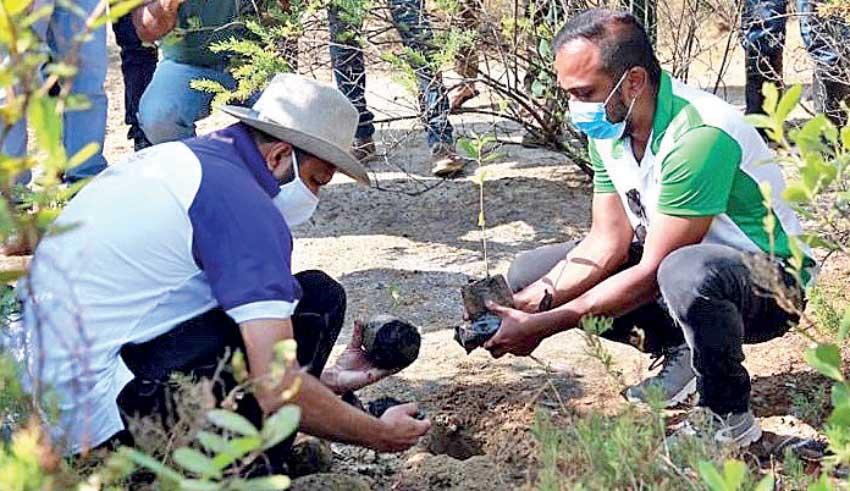04 Feb 2022 - {{hitsCtrl.values.hits}}

Representatives from Hemas Consumer Brands, WNPS, DWC, local farmers and well-wishers from the community present at Anawilundawa Ramsar Sanctuary at the first transplanting of plants from the nursery to the wetland in commemoration of World Wetland Day
Achieving a milestone in its natural regeneration project to restore the Anawilundawa Ramsar Sanctuary, in collaboration with the Wildlife & Nature Protection Society (WNPS), Hemas Consumer Brands commemorated the World Wetlands Day on February 2nd with the momentous first transplanting of plants from the nursery to the wetland.
The project is being spearheaded by 2 flagship brands, Baby Cheramy and Kumarika, the sponsors of this 5-year project, who are deeply committed to seeing it come to fruition as part of Hemas’ responsible environmental stewardship.
Danushka Silva - Marketing Manager Baby Cheramy from Hemas Consumer Brands said, “Sustainability is deeply entrenched in Hemas’ corporate values and is a way of life across all our operations. When Hemas Consumer Brands embarked on this project a year ago in partnership with WNPS, it became the first corporate organization to pledge support for a mangrove restoration project.
Mangroves are an essential part of the ecosystem and need to be conserved to maintain the balance in the environment for flora and fauna, as well as for protecting the coastline. We are proud to champion the restoration of the Anawilundawa Wetland Sanctuary.”
Started a year ago, a part of the project funding has been allocated for scientific study and continual analysis and measurement of the ecosystem. A total of 13 true mangrove species and 264 flora species have been identified at the Anawilundawa Wetland Sanctuary, which will be nurtured as part of the project.
Manjula Amararathne, Director (Protected Area Management) of the Department of Wildlife Conservation (DWC) said, “Scientific restoration of degraded mangroves needs patience, science, commitment from donors, community willingness and long-term monitoring. This initiative will teach us many lessons that can effectively be used in other sites. DWC looks forward to partnering with the right agencies for scientific activities like this that will benefit both nature and people.”
In order to carry out the plantation successfully, DWC and WNPS had already initiated a plant nursery with over 8 plants of which Rhizophora mucronata, Loop-root mangrove (Maha Kadol) holds the most number of plants with a survival rate of 90 percent.
Representatives from Hemas Consumer Brands, WNPS, DWC, local farmers and well-wishers from the community were present on the occasion of the World Wetlands Day. They reiterated that peripheral communities can also avail of the benefits of the project.
26 Nov 2024 45 minute ago
26 Nov 2024 58 minute ago
26 Nov 2024 2 hours ago
26 Nov 2024 3 hours ago
26 Nov 2024 3 hours ago